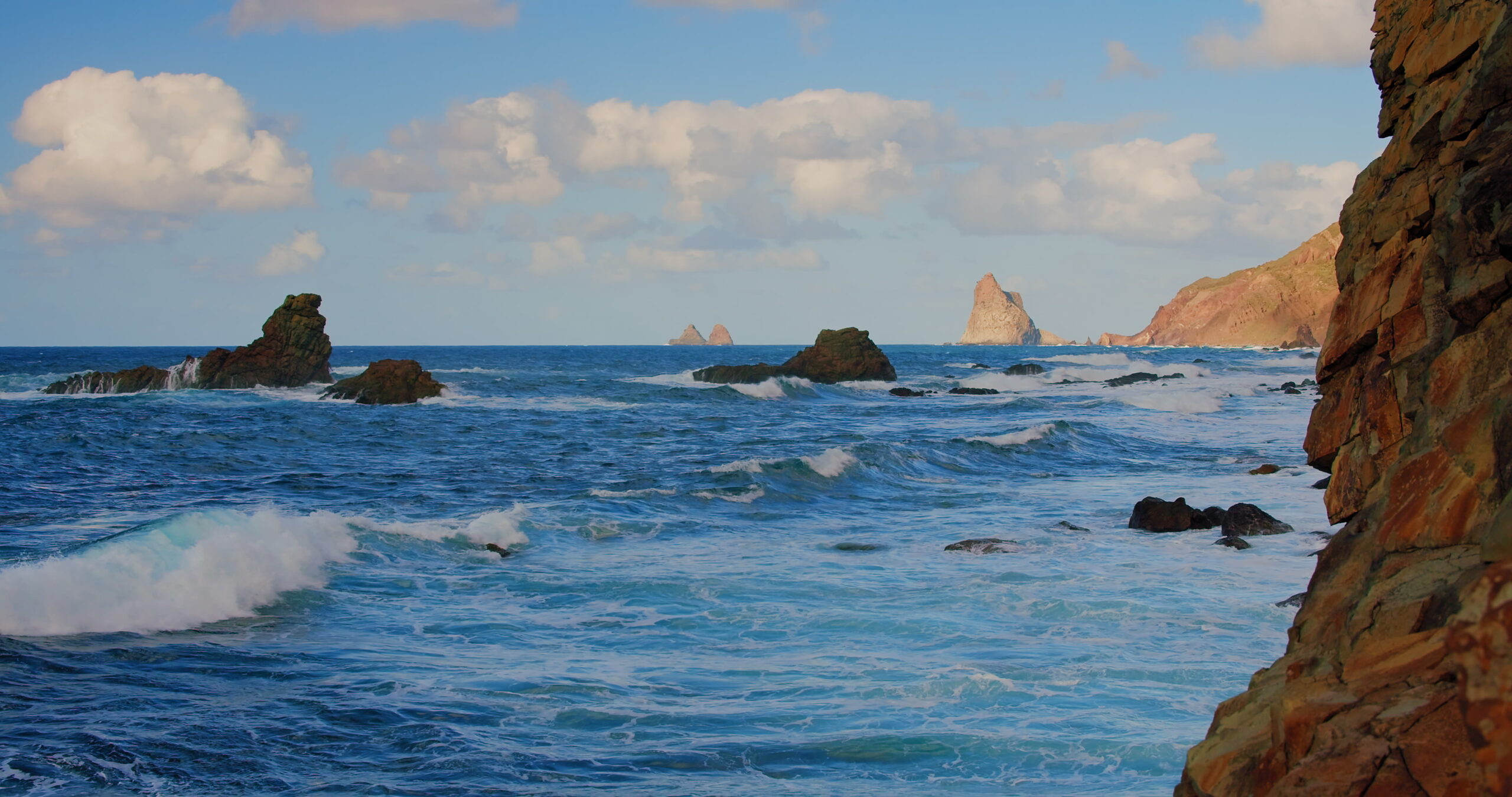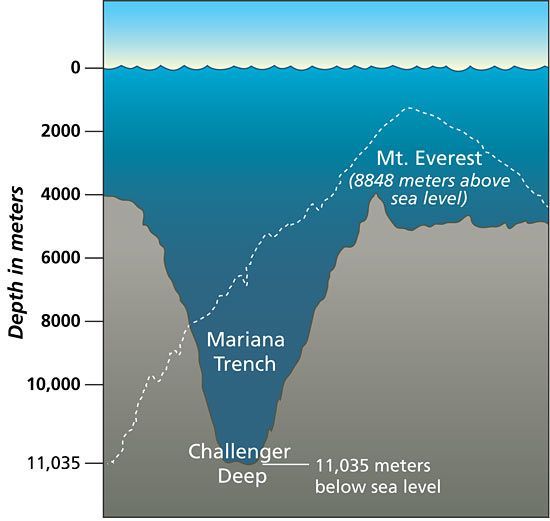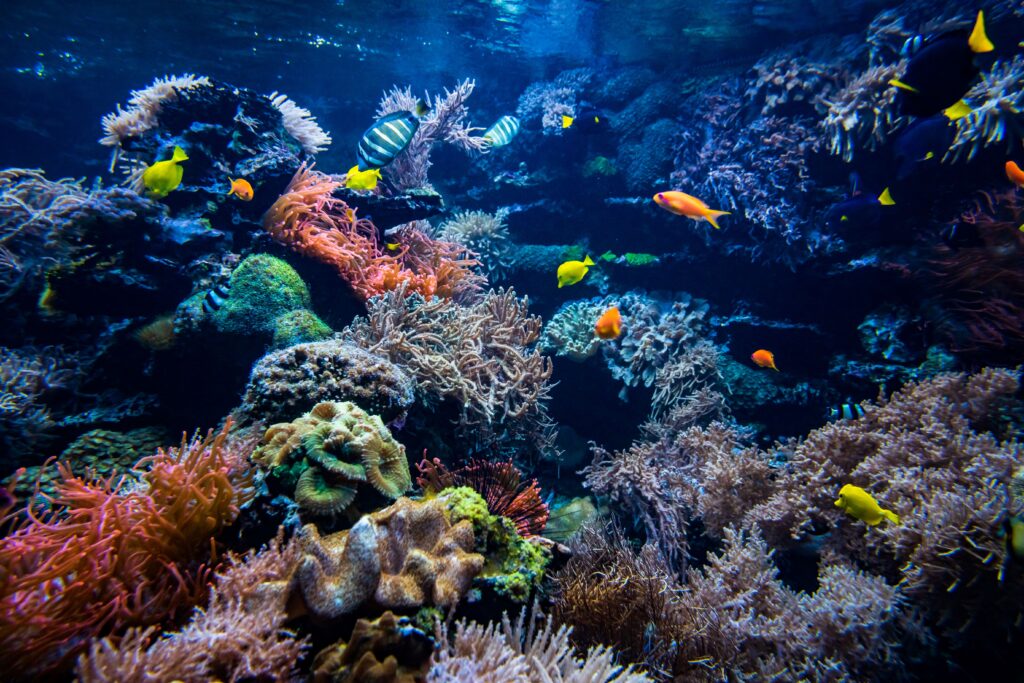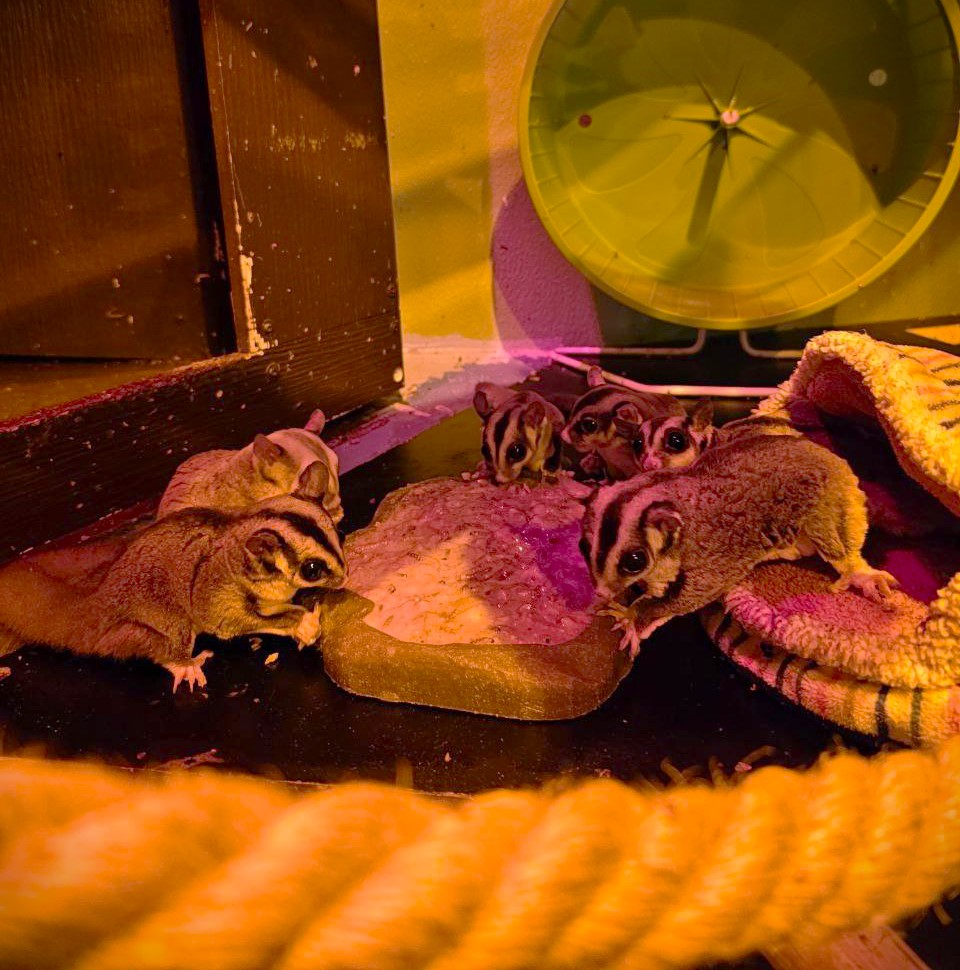Celebrate World Oceans Day: Let’s Protect Our World’s Oceans
Share it on:

The world’s oceans cover more than 70% of Earth’s surface, and being the largest ecosystem on our planet, it functions as a life support system for all its inhabitants. Our planet depends on the vitality of the ocean to support and sustain it. Simply put, the ocean is the heart of the planet and without it, we cannot survive. In order to ensure a sustainable future for humans and species on earth, we must protect the world’s oceans and preserve healthy marine ecosystems. This is why SeaQuest invites you to celebrate World Ocean Day with us!
What Is World Ocean Day?
World Ocean Day is celebrated by many countries worldwide and was officially recognized by the United Nations in 2008. Canada proposed the idea for a World Ocean Day in 1992 at the Earth Summit held in Rio de Janeiro. The goal was to recognize our world’s oceans and our personal connection to the sea and raise awareness of the essential role it plays in our lives and the overall health of the environment.
Now a global celebration, World Oceans Day is held every year on the 8th of June to continue awareness of our oceans’ vital importance and their role in sustaining a healthy planet. People around our blue planet celebrate and honor our ocean, which connects us all. This is your chance to get together with family, friends, and communities to work towards creating a better future for the earth!
Did You Know? The Pacific Ocean is the largest ocean in the world at 63,800,000 square miles, making up around 28% of the world’s total surface area!
Why Are the Oceans Important?
Have you heard this famous saying? It does not matter how far we live from the sea, from every ten breaths we take seven come from the ocean. It is often thought that rainforests are the primary source of oxygen on the planet. The reality is that rainforests are only responsible for 28% of the oxygen on Earth, while the oceans are responsible for more than 70%. The oceans absorb about 30% of carbon dioxide produced by humans, buffering the impacts of global warming.
The oceans also regulate the Earth’s climate. The ocean waters soak up heat and transport warm water from the equator to the poles, and cold water from the poles to the tropics. This is known as ocean currents. Without these currents, the weather would be extreme in some regions, and fewer places would be habitable. The oceans regulate rain and droughts. Because they hold 97% of the water on our planet, almost all rain that drops on land comes from the sea. The oceans are basically our global climate control system.
And the ocean is home to the greatest abundance of life on our planet. From dolphins to whales or turtles to crustaceans – those are just some of the creatures we can see on the surface. There’s so much more life below the ocean’s surface than on land. It’s estimated that more than 300.000 different species are underwater. Yet, it’s still not clear how many we don’t know of yet. All species that live in the ocean play an essential role in the trophic chain of the ecosystems
The ocean is also the number one source of protein for more than a billion people on earth. Fish accounts for about 15.7% of the animal protein consumed globally. Humans have traditionally used algae and sea plants for many cooking recipes such as sushi, Filippino pancit, sea grapes, dulse, and more.
Did You Know? The deepest spot on earth is the Mariana Trench, where the Challenger Deep is located – 7 miles below the surface! At 36,037 feet, it is far deeper than Mount Everest (29,032 ft), which is tall. The Marianas Trench is located in the Pacific Ocean.
What is the Biggest Threat to Oceans?
Our oceans face major threats: global climate change, pollution, habitat destruction, invasive species, and a dramatic decrease in ocean fish stocks. These threats are so extensive that more than 40% of the ocean has been severely affected. No area has been left untouched. Consequently, humanity is at risk of losing local food sources, jobs, and critical environmental services that a healthy ocean generates.
As the climate responds to decades of increasing carbon emissions, the storage of energy and heat from the atmosphere builds up in the ocean. If we reach a tipping point, we will likely see more extreme weather events, changing ocean currents, rising sea levels, and temperatures. This will cause the melting of sea ice and ice sheets, all of which aggravate the negative impacts of overfishing, illegal fishing, pollution, and destruction of habitats.
Oceans and Coral Reefs
Often referred to as the sea’s rainforests, coral reefs are home to 25% of all the ocean’s marine species. Healthy coral reefs are the most diverse of all the planet’s ecosystems, rivaling the diversity found in the Amazon. Close to 2 million different types of animals thrive within or around coral reefs.
Despite their importance, coral reefs face local and global threats. Nutrient runoff from land sources like agriculture or deforestation, overfishing, pollution, and climate change are all major contributing factors to the diminishing of our coral reefs. Simply put, coral reefs are dying.
75% of the earth’s coral reefs are at risk from global stresses. It’s estimated that by 2030, 90% of the earth’s coral reefs could die off.
A recent study revealed that the overwhelming amount of plastic pollution in the Pacific oceans attributes to the disease and death of the coral. Along with the plastic put into the ocean killing the reefs, coastal development has a significant impact on their decay, causing erosion and runoff containing excess sediment. This can boost ocean algae growth which starves the water of oxygen. The death of the coral reef could create a massive impact on not just animal life but also humankind.
How Can We Protect Our Oceans?
Let’s celebrate our oceans together! World Ocean Day is a way to learn more about our world’s shared ocean and our personal connection to the sea. While many of the issues discussed above may require leadership from governments and businesses, there are plenty of steps and actions you can take that will make a big difference for the ocean!
Skip Single-Use Plastics and Minimize Plastic Use: Look for plastic-free items such as paper products or recyclable materials. Use fabric shopping bags and paper or metal straws. Forgo plastic water bottles and cups– bring your own re-fillable jug with you everywhere!
Reduce your Carbon Emissions: If you can, walk, ride your bike, carpool, or take public transportation anywhere. The fewer cars on the road the better!
Consider Your Energy Footprint: Try to minimize the use of so many lights in your living space or home. During the day, sit by a window and use the natural sunlight rather than electricity. Unplug your electronics when you’re not using them, as they can use energy and drain power even when turned off.
Support Conservation Organizations and Volunteer: There are many nonprofits and companies who are doing great work to save and protect our oceans. Also consider supporting local restaurants, grocery stores, and businesses in your community that offer sustainable food products and alternatives to single-use plastics.
Keep on Learning! The more you learn about the ocean, the better prepared you’ll be to inspire change and help others do the same. There are many ways to educate yourself about the ocean and the challenges it faces, from books and documentaries to websites, aquariums, and more.
SeaQuest is committed to protecting our world’s oceans, wildlife, and endangered animals. We focus on how to be proactive in finding solutions. To learn more about how you can help protect and save our earth’s oceans, book your visit today at any of the following locations: Utah, Las Vegas, Dallas-Fort Worth, Sacramento, Minneapolis, Lynchburg, and New Jersey






